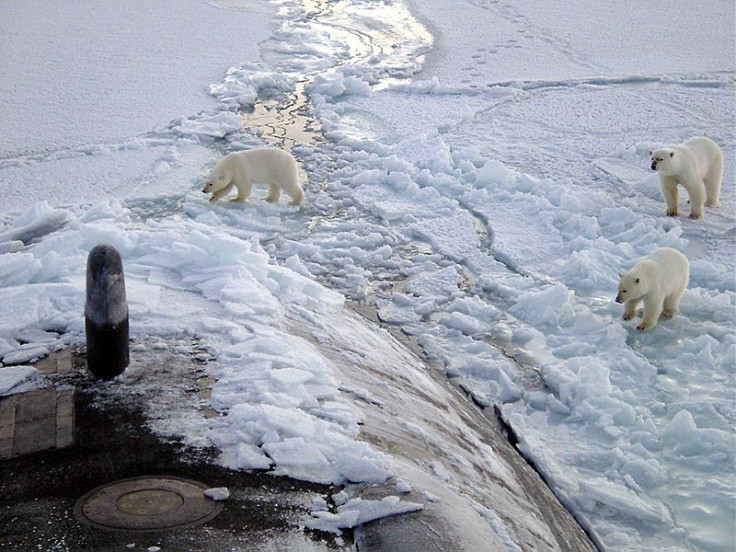
A new report suggests that the Arctic ocean is becoming increasingly more acidic.
Scientists from the Arctic Monitoring and Assessment Programme (AMAP) have found that the ocean chemistry in the region has changed. What's the cause? Carbon dioxide emissions. Not only does CO2 emissions warm the planet, but it also makes the sea (which is normally alkaline) more acidic when the CO2 is absorbed by the ocean from the air. What's more, cold waters absorb faster, which makes the water in the Arctic especially susceptible to the CO2 emissions, and the decrease in sea ice is also exposing more surface area to the CO2 in the atmosphere.
The conditions of the sea are so bad that even if CO2 emissions stopped now, it would take up to tens of thousands of years for the ocean chemistry to go back to what it was pre-Industrial Revolution -- scientists estimate that ocean acidity is 30 percent higher now than before the Industrial Revolution. Translation: There's no hope for going back; just to lighten the damage.
"Large rivers flow into the Arctic, which has an enormous catchment for its size," said Richard Belerby, the report's chairman, to BBC. "There's slow mixing so in effect we get a sort of freshwater lens on the top of the sea in some places, and freshwater lowers the concentration of ions that buffers pH change. The sea ice has been a lid on the Arctic, so the loss of ice is allowing fast uptake of CO2."
"Continued rapid change is a certainty," he added. "We have already passed critical thresholds. Even if we stop emissions now, acidification will last tens of thousands of years. It is a very big experiment."
As a result, scientists predict that major changes will be seen in the marine ecosystem as a result of the warming, and the ocean acidification that follows. For starters, a 2008 study points out that ocean acidification is responsible for mass extinction in the ocean and will have a significant impact on animals with skeletons. Another recent study, published in the journal Nature Geoscience, found that the shells of marine snails (also known as pteropods) are being dissolved courtesy of ocean acidification.
RELATED: Supersized Crabs: Why Seafood Lovers Should Be Worried
© 2025 Latin Times. All rights reserved. Do not reproduce without permission.





